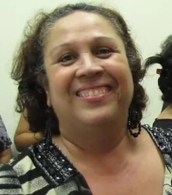Since the start of the pandemic, partnerships between health departments and communities have been essential in addressing COVID-19. These collaborations have fostered new relationships and promising practices, but they have also highlighted challenges in reaching immigrant, migrant, and refugee communities. As we continue to navigate the pandemic, and beyond, it is important to examine the lessons learned through our successes and challenges of working together. This webinar will showcase strategies that emphasize the importance of bi-directional engagement, community mediation, the fostering of long-term partnerships, and the benefits of intentional and organized efforts to link those who the pandemic made more vulnerable with health institutions.
Watch the Webinar Recording
Take the Evaluation
Presenters

Amy
Liebman
MPA, MA
Chief Program Officer
Migrant Clinicians Network
Amy K. Liebman, MPA, MA has devoted her career to improving the safety and health of disenfranchised populations. She joined Migrant Clinicians Network (MCN) in 1999 and currently serves as the Chief Program Officer. With MCN she has established nationally recognized initiatives to improve the health and safety of immigrant workers and their families. She oversees programs ranging from integrating occupational and environmental medicine into primary care to designing worker safety interventions. She is a national leader in addressing worker safety and environmental justice through the community health worker (CHW) model. She has been a strong advocate for worker health and safety during the COVID-19 pandemic, leading programs to improve access to care and culturally contextual education for migrants and immigrants. Prior to her current position, she directed numerous environmental health and justice projects along the US-Mexico Border including an award-winning, community-based hygiene education program that reached thousands of families living without water and sewerage services. She has spearheaded policy efforts within the American Public Health Association to support the protection of agricultural workers and served on the federal advisory committee to the EPA Office of Pesticide Programs. Her programs have won several awards including the 2008 EPA Children’s Environmental Health Champion Award and the 2015 National Safety Council Research Collaboration Award. In 2011, Liebman received the Lorin Kerr Award, an APHA/Occupational Health and Safety Section honor recognizing public health professionals for their dedication and sustained efforts to improve the lives of workers. And in 2024 she was honored with the Shelley Davis Humanitarian Award for her commitment to improving farmworker health and safety. She is a past Chair of APHA’s Occupational Health and Safety. Liebman has been the principal investigator and project manager of numerous government and privately sponsored projects. She has authored articles, bilingual training manuals and other educational materials dealing with environmental and occupational health and migrants. Liebman has a master’s degree from the LBJ School of Public Affairs at the University of Texas at Austin, and a Master of Arts from the Institute of Latin American Studies at the University of Texas at Austin. Liebman has traveled throughout Mexico, Guatemala, Argentina, Chile, and Europe. She is an avid soccer fan and loves to spend time with her husband and two sons. Together they spend a lot of time outdoors.

As Executive Director of Tri Community Mediation, Michele has been a leading force in the community mediation movement in Maryland. She has also spearheaded the Lower Shore Vulnerable Populations Task Force, in response to the need and disparity exposed by the COVID-19 pandemic. This project is creating a way to break down barriers for everyone to have equal access to resources and services in the community.
She has been mediating conflicts and training people in conflict resolution for more than 30 years. She has supported people from all walks of life in having tough conversations in connection with anything from personal relationships, workplace disputes, to prisoner reentry, and more. She has also facilitated numerous large group discussions, addressing issues such as intra-organizational conflict, goal setting, public policy, and others. Michele has designed multi-party conflict management workshop series for employees and management teams at several organizations. She is the mother of six children, three of whom are trained mediators.

Dipti Shah is the State Refugee Health Coordinator and Chief of the Center for Global Migration and Immigrant Health at the Maryland Department of Health (MDH). In this role, Ms. Shah is responsible for overseeing the state's refugee and migrant health programs, including the management of all refugee and migrant health funding and data, development of screening guidelines, ensuring the provision of culturally-informed and language-accessible health services and health education to newly eligible humanitarian immigrants, and building partnerships and facilitating collaborations with refugee and immigrant service providers. Prior to her work at MDH, Ms. Shah served as the Senior Project Manager at a non-profit organization in Washington, DC working in tuberculosis policy and advocacy. Ms. Shah earned her graduate degree in infectious disease epidemiology from the Johns Hopkins School of Hygiene and Public Health and her undergraduate degree in biochemistry and molecular biology from the University of Wisconsin. She served on the National Association of Refugee Health Coordinators (ARHC) Executive Board in varying capacities from 2009 through 2019.

Leila is Puerto Rican, from the city of Quenepa, Ponce. She came to the USA in 1975, and she lives in the state of Maryland. Since 1986 Leila has worked with migrant workers in various areas that affect the migrant. She started working on Social Services in Cambridge, MD, helping with the food stamp program. After that, Leila began working with health clinics as a medical interpreter and farmworker health educator. Later on, Leila started working on Legal Services and visited all the fields in Maryland and Delaware, and this is how, in one of those camps, she met Manuel, CATA’s Lead Organizer. Then Leila went to work with Catholic Charities addressing immigration matters and from there to CATA in 2012. She has learned so much from all the people that she has been in contact with. Leila likes to know and share the cultures and traditions of all of them.